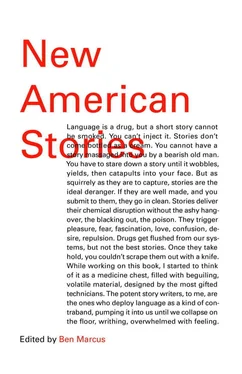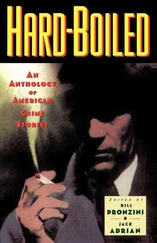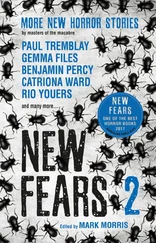The door doesn’t open. I try again and it still doesn’t open. “Hero? Give me the code again?”
She doesn’t say anything. I go over and shake her gently. “Tell me the code one more time. Come on. One more time.”
Her eyes stay closed. Her mouth falls open. Her tongue sticks out.
“Hero.” I pinch her arm. Say her name over and over again. Then I go nuts. I make kind of a mess. It’s a good thing Hero isn’t around to see.
And now it’s a little bit later, and Hero is still dead, and I’m still trapped down here with a dead hero and a dead cat and a bunch of broken shabti. No food. No good music. Just a small canister of something nasty cooked up by my good friend Nikolay, and a department store’s worth of size four jeans and the dregs of a bottle of very expensive champagne.
—
The Egyptians believed that every night the spirit of the person buried in a pyramid rose up through the false doors to go out into the world. The Ba. The Ba can’t be imprisoned in a small dark room at the bottom of a deep shaft hidden under some pile of stones. Maybe I’ll fly out some night, some part of me. The best part. The part of me that was good. I keep trying combinations, but I don’t know how many numbers Hero used, what combination. It’s a Sisyphean task. It’s something to do. There’s not much oil left to light the lamps. The lamps that are left. I broke most of them.
Some air comes in through the bottom of the door, but not much. It smells bad in here. I wrapped Hero up in her shawls and hid her in the closet. She’s in there with Noodles. I put Noodles in her arms. Every once in a while I fall asleep and when I wake up I realize I don’t know which numbers I’ve tried, which I haven’t.
The Olds must wonder what happened. They’ll think it had something to do with that video. Their people will be doing damage control. I wonder what will happen to my Face. What will happen to her. Maybe one night I’ll fly out. My Ba will fly right to her, like a bird.
One day someone will open the door that I can’t. I’ll be alive or else I won’t. I can open the canister or I can leave it closed. What would you do? I talk about it with Hero, down here in the dark. Sometimes I decide one thing, sometimes I decide another.
Dying of thirst is a hard way to die.
I don’t really want to drink my own urine.
If I open the canister, I die faster. It will be my curse on you, the one who opens the tomb. Why should you go on living when she and I are dead? When no one remembers our names?
—
Hero.
—
Tara.
—
I don’t want you to know my name. It was his name, really.
THE DIGGINGS by Claire Vaye Watkins
* for Captain John Sutter *
There were stories in the territory, stories that could turn a sane man sour and a sour man worse. Three Frenchmen in Coloma dug up a stump to make way for a road and panned two thousand dollars in flakes from the hole. Above the Feather River a Michigander lawyer staked his mule for the night, and when he pulled it in the morning a vein winked up at him. Down on the Tuolumne a Hoosier survived a gunfight and found his fortune in the hole the bullet drilled in the rock above his shoulder. Near Carson Creek a Massachusetts man died of Isthmus sickness, and mourners shoveled up a seven-pound nugget while digging his grave. In Rough and Ready a man called Bennager Raspberry, aiming to free a ramrod jammed in his musket, fired at random into the exposed roots of a manzanita bush. There he found five thousand dollars in gold, free and pure.
In California gold was what God was in the rest of the country: everything, everywhere. My brother Errol told of a man on a stool beside him who bought a round with a pinch of dust. A child dawdling in a gully found a queerly colored rock and took it to his mother, who, Errol said, boiled it in lye in her teakettle for a day to be sure of its composition. A drunkard Pike told Errol he’d found a lake whose shores sparkled with the stuff but he could not, once sober, retrieve the memory of where it was. There were men drowning in color, men who could not walk into the woods to empty their bladders without shouting Eureka!
And there were those who had nothing. There were those who worked like slaves every single day, those who had attended expensive lectures on geology and chemistry back home, those who had absorbed every metallurgy manual on the passage westward, put to memory every map of those sinister foothills, scrutinized every speck of filth the territory offered and in the end were rewarded without so much as a glinting in their pans.
And there was a third category of miner, too, more wretched and volatile than the others: the luckless believer. Here was a Forty-Niner ever-poised on the cusp of the having class, his strike a breath away in his mind. Belief was a dangerous sickness at the diggings — it made a man greedy, violent, and insane. The fever burned hotter within my brother than in any other prospector among the placers. I know, because it was I who lit him.
My brother and I came to gold country from Ohio when Errol was twenty and I seventeen. Our father had gone to God in December of 1848, leaving us three hundred dollars each. I had not been especially interested in the activity out west — my eyes looked eastward, in fact, to Harvard Divinity. But my brother was married to the notion. He diverted the considerable energies he usually spent clouting me or bossing me around and put them toward convincing me to join him. I admit I rather enjoyed this process of conversion — it was maybe the first in all our life together that Errol had regarded me with greater interest than that due an old boot. His efforts having roused in me the spirit of adventure, I began to fancy us brother Argonauts, bold and divine.
We left our mother and sisters in Cincinnati in the early spring of 1849, and set out by way of the Ohio and Missouri rivers. In Independence we bought a small freight wagon and spent a week and what was left of our money readying it. We fit iron rims to the wheels, tightened the spokes, greased the axles, secured the bolts, and reinforced the harnesses. We purchased new canvas from an outfitter, coated it with linseed oil and beeswax, and stretched it across the new pine bows. My brother, despite his want of artistic aptitude, painted the canvas with a crude outline of Ohio and a script reading “Ho for California!”
In Independence we took up with a group of men who called themselves the Missouri Overland Mutual Protection Association for California. Errol wrote what was by then surely his hundredth letter to Marjorie Elise Salter, whose family owned and operated Salter Soap & Lye. It was Marjorie for whom Errol was getting rich. That fall and through the winter Errol had developed the habit of slinking off to see her, leaving me to do his chores. I didn’t think much of Miss Salter, I’ll tell you now. I thought she waltzed rather better than I would want my wife to. But the once I alerted Errol to the infrequency with which Salter girls married into farming families such as ours, he rapped my collarbone with the iron side of a trowel, putting a permanent zag in it.
The day we left Cincinnati, Errol leaned from the steamer, tossed Marjorie a gold coin that had been our father’s, and shouted, “Where I am going there are plenty more!”
With the yobs and gamblers of the Missouri Company we followed the Platte then the Sweetwater to South Pass, around the Great Salt Lake then along the course of a river called the Humboldt, whose waters were putrid and whose poisonous grasses killed two of our party’s oxen. At the place where that miserable river disappeared into the sand we found a boulder on which an earlier traveler had scraped some words with a nib of charcoal. It read: Expect to find the worst desert you ever saw and then to find it worse than you expected. Take water. Take water. You cannot carry enough.
Читать дальше










![Женя Джентбаев - neo futura [stories]](/books/692472/zhenya-dzhentbaev-neo-futura-stories-thumb.webp)

